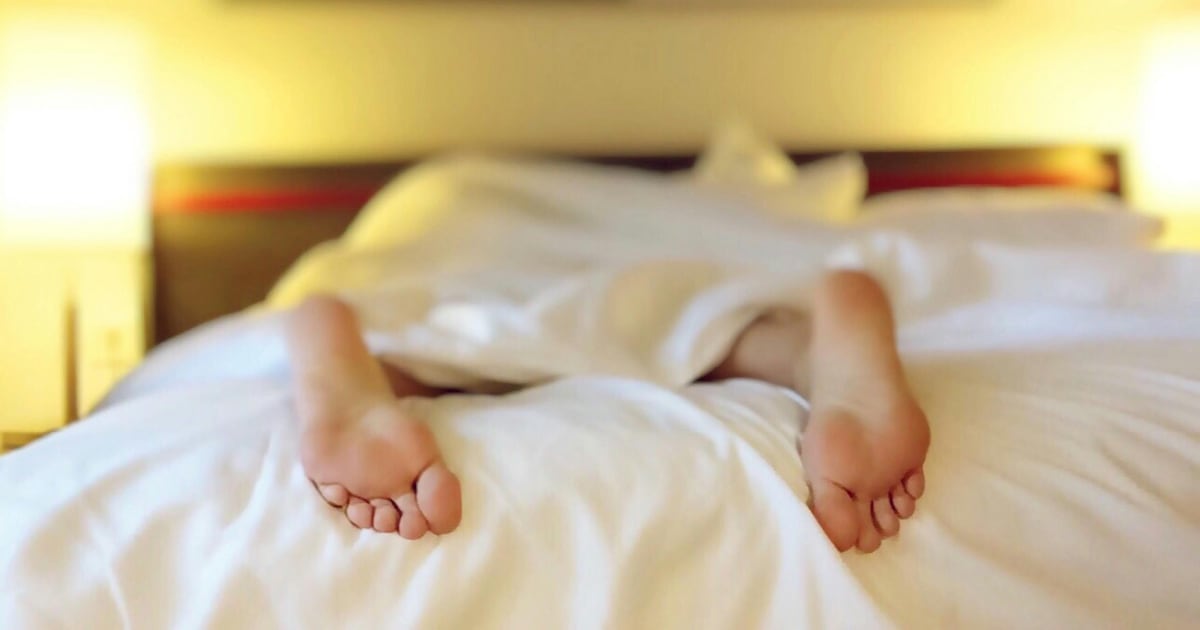Health
Beat the Heat: Tips for Sleeping Soundly on Hot Nights

Experiencing sleepless nights due to heat can be frustrating, especially as climate change leads to more frequent and intense heat waves globally. Experts suggest that optimal sleeping conditions occur between 60° and 68° F (15 to 20 °C) with humidity levels at 40 to 60 percent. Outside these ranges, sleep quality tends to decline significantly, leading to irritability and decreased productivity during the day. Prolonged poor sleep is associated with serious health risks, including high blood pressure, diabetes, and even early mortality.
The Impact of Heat on Sleep Quality
Research on the specific effects of sleeping in hot conditions remains limited, according to Lauren E. Hale, PhD, a professor at Stony Brook University. Nevertheless, it is established that restorative sleep is essential for optimal bodily function. Insufficient sleep can lead to various health issues, including anxiety, depression, and cardiovascular diseases.
Heat disrupts the body’s natural temperature regulation, which plays a critical role in the sleep cycle. As your body temperature rises, you may find it challenging to fall and stay asleep. This interference can lead to more frequent awakenings and a reduction in restorative rapid eye movement (REM) sleep, which is vital for overall well-being.
Effective Strategies for Cooler Nights
Fortunately, there are several practical measures you can adopt to combat sleeplessness caused by heat, even without air conditioning.
Optimize Your Bedroom Environment
One of the first steps is to block out sunlight. If outdoor temperatures exceed those inside your home, close the blinds or shades and keep windows shut. This simple action can help maintain a cooler environment, as emphasized by Alcibiades Rodriguez, MD, of NYU Langone Health.
Enhancing room temperature can also be achieved through air conditioning units or central air systems. For those without such amenities, creating cross-ventilation can be effective. Open multiple windows and use a fan to circulate air. Douglas Kirsch, MD, notes the additional benefit of fans providing white noise, which can enhance sleep quality. Yet, it is crucial to be aware that using a fan in extremely hot conditions may worsen the situation. The U.S. Centers for Disease Control and Prevention warns that fans may actually raise body temperature when indoor temperatures exceed 90° F (32 °C).
Cool Your Sleep Space
Another approach involves chilling your bedding. Storing bedsheets and pillowcases in a plastic bag in the freezer before bedtime can offer immediate relief. Additionally, opting for 100 percent cotton sheets, as recommended by the National Sleep Foundation, can prevent overheating during the night.
Selecting the right mattress is also crucial; some materials, like foam, may retain heat, while innerspring mattresses tend to remain cooler.
Lowering your core body temperature before sleep can further enhance comfort. Taking a cold shower or applying a cool compress to your forehead can aid in achieving this. Staying hydrated is equally important, as warm temperatures can increase thirst. Keeping water nearby can minimize disruptions during the night.
Finally, if sharing a bed with a partner leads to excess body heat, consider sleeping separately on particularly hot nights. This not only helps with temperature regulation but may also improve sleep quality overall.
By implementing these strategies, you can create a more conducive sleeping environment, even during the hottest of nights. Prioritizing sleep health is essential, especially as global temperatures continue to rise.
-

 Science3 months ago
Science3 months agoToyoake City Proposes Daily Two-Hour Smartphone Use Limit
-

 Top Stories3 months ago
Top Stories3 months agoPedestrian Fatally Injured in Esquimalt Collision on August 14
-

 Health3 months ago
Health3 months agoB.C. Review Reveals Urgent Need for Rare-Disease Drug Reforms
-

 Technology3 months ago
Technology3 months agoDark Adventure Game “Bye Sweet Carole” Set for October Release
-

 World3 months ago
World3 months agoJimmy Lai’s Defense Challenges Charges Under National Security Law
-

 Lifestyle3 months ago
Lifestyle3 months agoVictoria’s Pop-Up Shop Shines Light on B.C.’s Wolf Cull
-

 Technology3 months ago
Technology3 months agoKonami Revives Iconic Metal Gear Solid Delta Ahead of Release
-

 Technology3 months ago
Technology3 months agoApple Expands Self-Service Repair Program to Canada
-

 Technology3 months ago
Technology3 months agoSnapmaker U1 Color 3D Printer Redefines Speed and Sustainability
-

 Technology3 months ago
Technology3 months agoAION Folding Knife: Redefining EDC Design with Premium Materials
-

 Business3 months ago
Business3 months agoGordon Murray Automotive Unveils S1 LM and Le Mans GTR at Monterey
-

 Technology3 months ago
Technology3 months agoSolve Today’s Wordle Challenge: Hints and Answer for August 19









